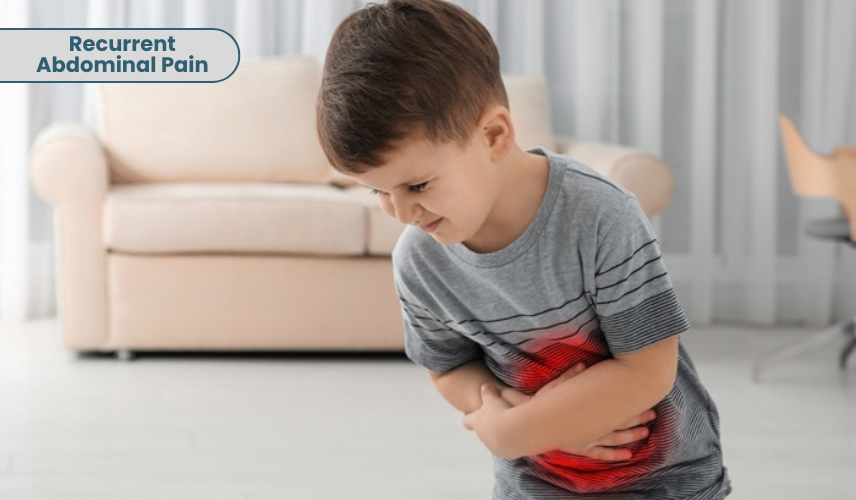
Recurrent Abdominal Pain
What is Recurrent Abdominal Pain?
Recurrent abdominal pain (RAP) refers to repeated episodes of stomach pain in children that last for at least a few months. It is a common concern in pediatric patients and can affect a child’s daily activities, school performance, and overall well-being.
Causes of Recurrent Abdominal Pain
Recurrent abdominal pain can have many different causes, including:
- Functional abdominal pain: The most common type, where no specific disease or structural problem is found. This is often related to how the nerves and muscles in the gut work.
- Gastrointestinal conditions: Such as constipation, acid reflux, lactose intolerance, or infections.
- Food allergies or sensitivities: Certain foods can trigger pain or discomfort.
- Psychological factors: Stress, anxiety, or emotional issues can sometimes contribute to abdominal pain.
- Other medical conditions: Less commonly, recurrent pain may be due to conditions like inflammatory bowel disease, celiac disease, or urinary tract infections.
Symptoms to Watch For
In addition to pain, children may experience:
- Nausea or vomiting
- Changes in bowel habits (diarrhea or constipation)
- Loss of appetite or weight loss
- Fever or blood in stool (which require urgent medical attention)
When to See a Pediatric Gastroenterologist
If your child experiences recurrent abdominal pain that:
- Occurs frequently and interferes with daily life
- Is associated with alarming symptoms like weight loss, persistent vomiting, blood in stool, or severe pain
- Does not improve with initial treatment or lifestyle changes
It’s important to consult a pediatric gastroenterologist for a thorough evaluation and personalized care.
How We Approach Diagnosis and Treatment
At our clinic, we take a compassionate and detailed approach to identify the cause of your child’s pain. Our evaluation may include:
- Detailed medical history and physical examination
- Laboratory tests and stool studies
- Imaging studies, if needed
- Specialized tests like endoscopy in select cases
Treatment depends on the underlying cause but often includes dietary modifications, managing stress, and medication when necessary. We focus on relieving symptoms and improving your child’s quality of life.
Supporting Your Child’s Health
.png)